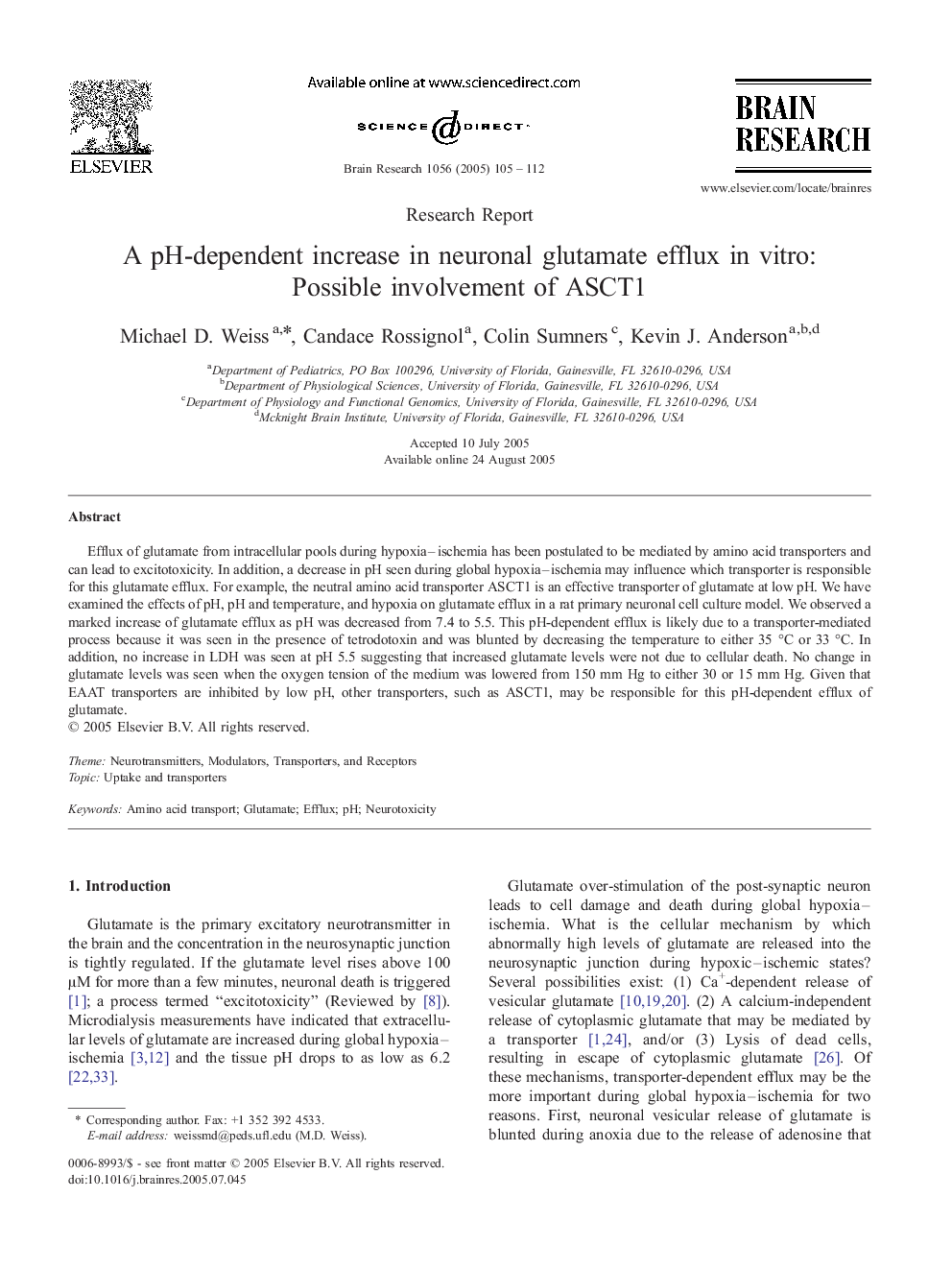| Article ID | Journal | Published Year | Pages | File Type |
|---|---|---|---|---|
| 9416010 | Brain Research | 2005 | 8 Pages |
Abstract
Efflux of glutamate from intracellular pools during hypoxia-ischemia has been postulated to be mediated by amino acid transporters and can lead to excitotoxicity. In addition, a decrease in pH seen during global hypoxia-ischemia may influence which transporter is responsible for this glutamate efflux. For example, the neutral amino acid transporter ASCT1 is an effective transporter of glutamate at low pH. We have examined the effects of pH, pH and temperature, and hypoxia on glutamate efflux in a rat primary neuronal cell culture model. We observed a marked increase of glutamate efflux as pH was decreased from 7.4 to 5.5. This pH-dependent efflux is likely due to a transporter-mediated process because it was seen in the presence of tetrodotoxin and was blunted by decreasing the temperature to either 35 °C or 33 °C. In addition, no increase in LDH was seen at pH 5.5 suggesting that increased glutamate levels were not due to cellular death. No change in glutamate levels was seen when the oxygen tension of the medium was lowered from 150 mm Hg to either 30 or 15 mm Hg. Given that EAAT transporters are inhibited by low pH, other transporters, such as ASCT1, may be responsible for this pH-dependent efflux of glutamate.
Keywords
Related Topics
Life Sciences
Neuroscience
Neuroscience (General)
Authors
Michael D. Weiss, Candace Rossignol, Colin Sumners, Kevin J. Anderson,
